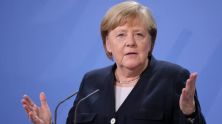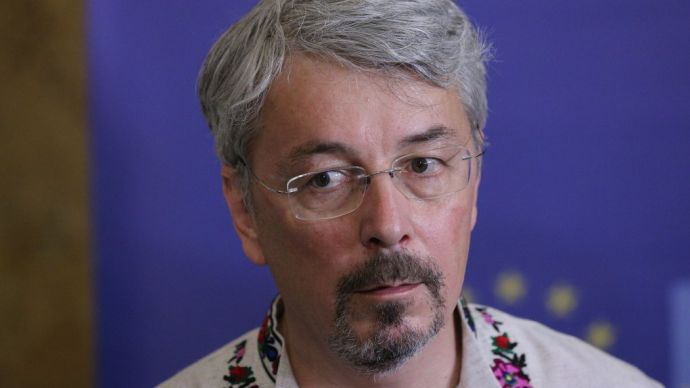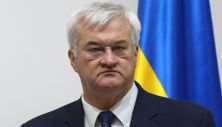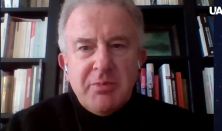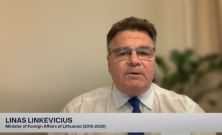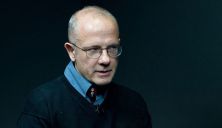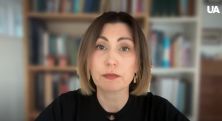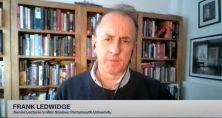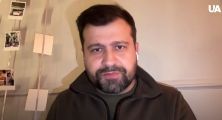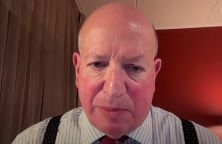On November 24, the Executive Committee of the Odesa City Council voted for the dismantling of the monuments to Catherine II and Alexander Suvorov. It is these architectural objects that now attract the attention of the occupying authorities in the occupied territories and cause a lot of controversy in Ukrainian society. Thus, during the retreat, the Russian military removed monuments to Suvorov and Ushakov from Kherson. And in Odesa, Catherine II has already several times become the central object of unknown actionists against imperial symbols. In Ukraine, as well as in a number of post-Soviet countries, the process of decommunization continues, which especially irritates Moscow.
About how the dismantling of Soviet and pro-Russian monuments in Ukraine should take place and what role they play for the Kremlin, the journalists of the FREEDOM TV channel talked with the Minister of Culture and Information Policy of Ukraine Oleksandr Tkachenko.
You have said more than once in your interviews that smashing and destroying monuments is wrong, that they simply should be in a different place. Where will there be a place for the monument to Catherine II in Odesa.
When this monument was erected, a clear answer to the question “why?” I have not received. But even then it was clear that this monument would cause a lot of controversy. During the war this became more than obvious. Catherine conquered the lands and destroyed the Ukrainian Cossacks. And it is unlikely that she was the founder of Odesa, because there are many historical facts about what settlements existed in Odesa, and the fortress of Kochubey suggests that this city has a much more extensive history than the time when it began to get upset.
I am glad that finally the residents of Odesa and the mayor supported this decision. It remains now to wait for the decision of the Odesa City Council. We strongly support this decision. As for the legality or illegality of the transfer of monuments, this must definitely take place within the framework of our European principles. If a decision is made by the relevant authorities, it should be justified taking into account the opinion of experts, perhaps sometimes the population with the support of the Ministry of Culture, if this monument is included in the register of local or national monuments and moved to another place.
The discussion about the monument to Catherine II has been going on for a long time, not only from the beginning of Russia’s full-scale aggression against Ukraine. Why, in your opinion, is there such a discussion around the monument?
This is a question for the local authorities and the narratives that they reflect. If the predecessors of the current local authorities were guided by something when installing this monument, then, accordingly, their followers, I mean those who were elected after them, should justify why this monument should be demolished? The case with Catherine is a separate story, because there was no point in erecting this monument. This is my deep conviction, but it happened. So, in fact, this whole discussion arose.
And here the question is much deeper. This question is not only about Catherine, it is a question about dozens of monuments to Pushkin and other figures of Russian culture, which both the Russian Empire and the Soviet Union deliberately planted throughout Ukraine. Why do Ukraine need 400 streets of Pushkin? When I had a discussion with Italian colleagues. They asked: “What did Pushkin do to you?” To which he answered: “How many streets of Pushkin are in Italy?” They didn’t remember, maybe one or two. You understand that this is a conscious policy of imposing the so-called Russian world on the territories that were occupied by Russia.
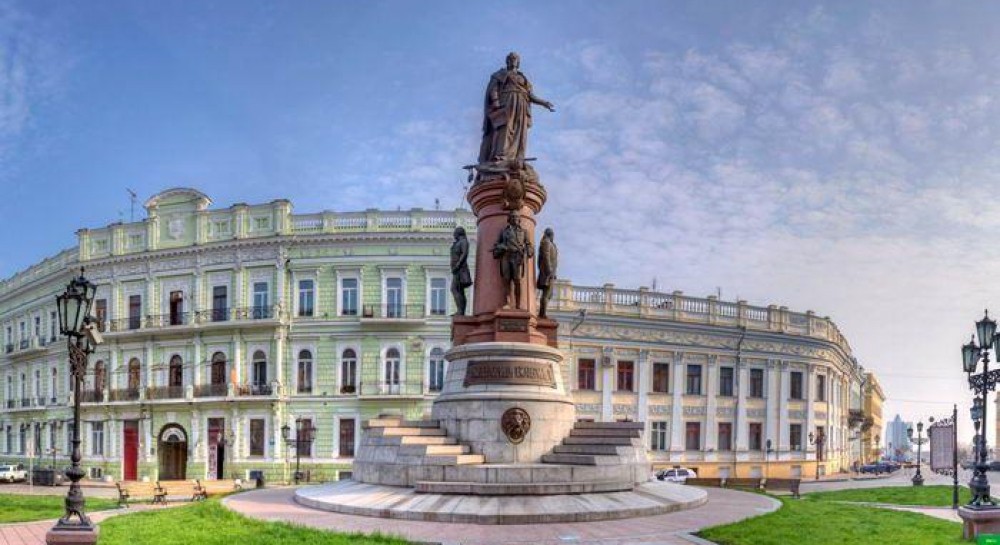
So what will happen and what can be instead of these monuments?
This is a question for the Odesa authorities. We hope to discuss this with them. I discussed this with the mayor. They are talking about some kind of fountain.
If local authorities consider it necessary to contact us, we will advise them. If we see that the discussion is going somewhere in the wrong direction, we will definitely intervene. But this is clearly the authority of local authorities. And this is an essential point that distinguishes the democratic Ukrainian state from Russia.
In fact, it is most important for us to promote Ukrainian culture abroad. For example, a huge exhibition of Ukrainian modernism, which is attributed to Russian culture, opens in Madrid on Monday. They call it Russian modernism. And the fact that signs were changed in many museums, that these are paintings by Ukrainian masters, suggests that this awareness is taking place in the world.
This, including the project that we launched together with Google Arts & Culture Ukraine just the day before yesterday, which tells about Ukrainian museums. This is a virtual journey through Ukrainian reserves, culture, information about food and many other things that show the world what Ukraine is rich in. Therefore, the promotion of Ukrainian culture is important not only in our country, but also abroad.
And the desire of the majority of Ukrainians who spoke Russian at home to switch to Ukrainian during the war – of course, no one forced them.
The Russian authorities are now erecting monuments to Soviet commanders and other odious personalities of the regime in the occupied territory. They also stole monuments to Fyodor Ushakov and Alexander Suvorov from Kherson. Why do you think Russia is doing this?
You know, dealing with a mentally ill person and analyzing the nature of decision-making is very difficult. On the other hand, the monument to Potemkin is also the decision of one of the leaders of the current Gauleiter, Vladimir Saldo. This is a remake, just like Catherine.
These monuments are not included in the register, we are ready to exchange them for a raccoon, for stolen exhibits from Ukrainian museums in the Kherson region, Donetsk and other regions. Please, how many monuments of Pushkin you need, we will agree, just return everything that you stole. And if not, we will appeal to the international community about the arrest of Russian exhibits that are now in the civilized world. Such an appeal is currently being prepared.
Moscow is very nervous when the process of decommunization begins in the states that were previously part of the Soviet Union. Why?
Because it’s a marker. Russia is trying to spread the myth about how great Russian culture is. Most Russian politicians were well aware of what money they were using and what regime they were defending. Russian culture is a tip on a rocket that rushes to Ukraine, and tomorrow it may rush to the Baltic countries and beyond. Therefore, we are trying in every possible way to explain to our Western colleagues that Russian culture is a classic weapon. And neither Putin himself nor the director of the Hermitage Boris Piotrovsky, who calls the export of Russian culture a “special operation”, is not ashamed to say this. These are the same words they use to call the war in Ukraine. Therefore, this can be put exactly a barrier in the civilized world.
Nevertheless, it is Russian propaganda that says that “Nazis” live in Ukraine and demolish monuments.
“Suffice it to refer to the actions that the Russians and the Soviet Union carried out on the territory of Ukraine for decades and centuries, banning culture, the Ukrainian language, removing books from Ukrainian libraries in Ukrainian now during this war, exterminating Ukrainians during the Holodomor. This is all genocidal politics. Therefore, this is a classic GBshnaya story (that is, one that has been dealt with by employees of state security agencies since the times of the USSR – ed.): to transfer their responsibility to the other side.
Is it possible to say that the Kremlin is actually worried about what “information muscles” Ukraine has built up, what can really win and is winning in the information field?
Russian and Ukrainian capabilities are not comparable. The only thing we can oppose to the Russian falsification factory is truth, information, frank conversation, facts. This is what, in fact, Western journalists see when they are in Ukraine. So what is the power brother? In Ukraine.
